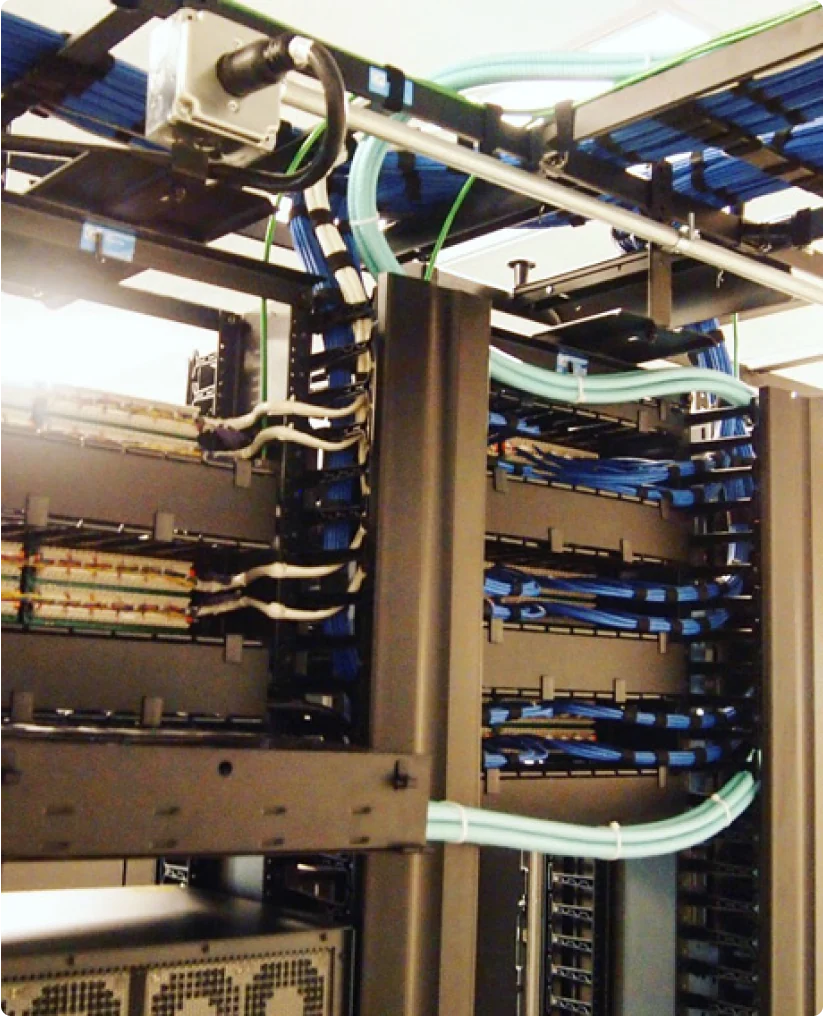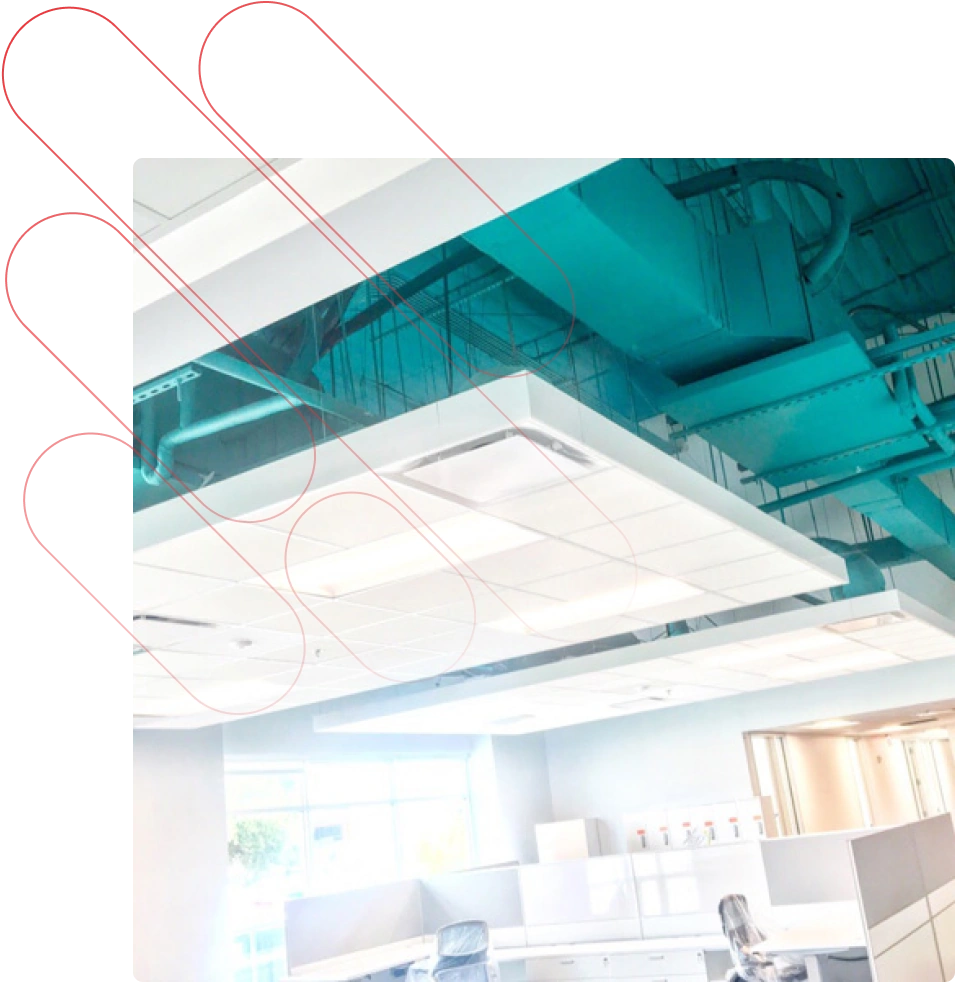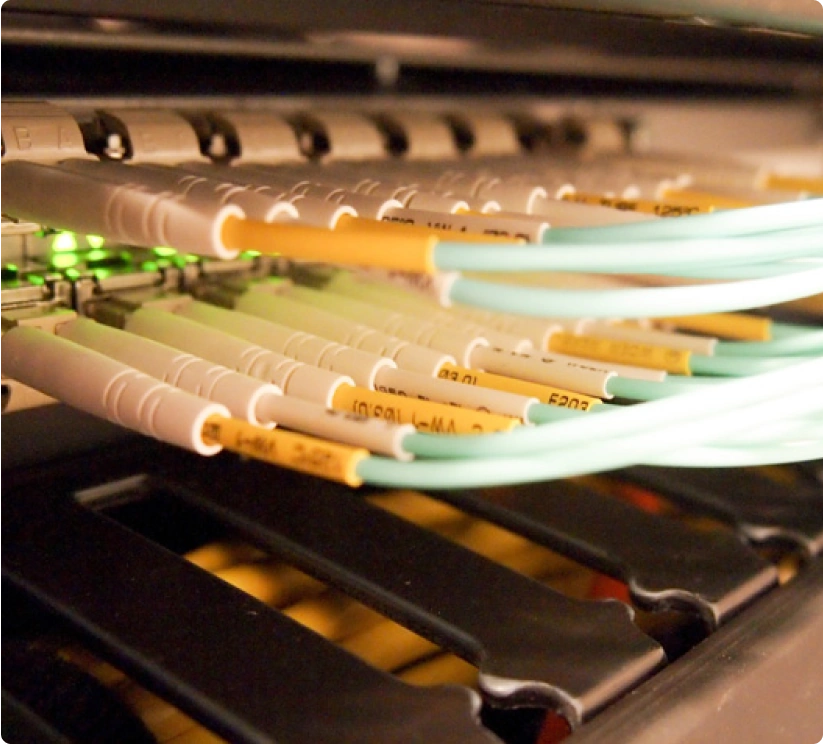Back to Services
Voice, Data & Fiber Optic Structured Cabling



Why Is Structured Cabling Important?
Even with the emergence and growth of cloud-based systems, structured cabling is still a necessity for businesses to maximize operational efficiency and agility with change.
Not only does structured cabling keep your office up and running, it also:
- Reduces clutter: Proper planning and expert structured cabling installation from Telco Data ensures that your cables stay organized and hidden until you need to find them.
- Makes identifying issues easier: Tracing and identifying errors and bugs is quicker and simpler with a well-organized structured cabling system.
Telco Data does structured cabling right – the first time around. After we complete the project, your system will need little maintenance and upkeep, and will be easy to understand and reconfigure if needed in the future.
Ensure the lasting quality of your structured cabling by getting in touch with us to claim your free on-site consultation!


Network Cabling Design & Installation
Telco Data knows that no two offices are alike – that’s why our RCDD designers and estimators begin every project with a thorough on-site consultation, setting the foundation for crafting a network cabling solution that suits your exact needs.
Throughout the project, our technicians submit daily progress reports, and your dedicated Project Coordinator and Project Manager perform regular visits to your space, complete with job quality and site cleanliness inspections.
To close out a successful project, Telco Data will deliver and install a laminated copy of your floor plan, detailing every cable location and port number. We also provide a digital packet containing floor plans, rack elevation, Certified Fluke Test Results, manufacturer warranty, and technical specification sheets.
Security Solutions
The backbone of your security system is the structured cabling that connects your security cameras, door strikes, key card or badge readers, motion sensors, and glass break sensors back to the security head-end equipment.
Telco Data’s structured cabling services get your security cabling roughed in overhead, as well as dressed side-by-side with your data cabling – our ultimate goal is to create organization and avoid the dreaded “spaghetti” ceiling effect.
Additionally, we are able to place all of the required cabling and leave it for your Licensed Security Vendor to make the final connections.


Voice & Data Cabling Design & Installation
Telco Data can help you ensure that you have all of the necessary infrastructure in place for all of your technology, systems, and devices to operate efficiently, letting you focus on the things that help your business grow. We can even patch in your network, avoiding messy work closets from the get-go.
During the initial on-site consultation, our team will collaborate with you to get to know your goals and needs, and offer the solution that fits within your space and budget – now and in the future.
Hundreds of reviews show how great we are
What Happy Clients Have to Say
People are literally in awe when they see how clean the cabling is and the quality of workmanship provided by Telco. If you are considering using Telco Data for your project, just do it. You will not be disappointed.

Jason C.
Telco Data has been spectacular to work with. The employees I’ve interacted with go above and beyond from beginning to end. Highly recommend and will continue using them for our business telecommunications and cabling needs

What I found in Telco Data was an awesome partner to my success. I hope to work with the team again soon. They do more than just a great job with network cabling.

Mike F.
Voice, Data & Fiber Optic Cabling FAQs
What is structured cabling?
Structured cabling refers to voice and data cables and the associated hardware. The role of structured cabling is to provide telephone service, data transmission via a computer network, and more.
Structured cabling services from an expert provider like Telco Data is planned from the very beginning to ensure efficiency, organization, scalability, and ease of maintenance.
Why do I need structured cabling?
In addition to the scalability and flexibility of structured cabling, it is a necessary component of any office that requires support for video, voice, data transmission, and more. With Telco Data’s expertise, your structured cabling solution will look clean, organized, and cause no disturbance to your organization’s day-to-day activities.
How does structured cabling work?
The main goal of structured cabling is to connect all of your devices (computers, phones, printers, speakers, and more) to one centralized location in your office building. The key parts of structured cabling are the cables themselves, the connections between them, and the data center – a dedicated space within your building that houses all of the network equipment.
How much does structured cabling cost?
Though the total project cost of professional structured cabling services can vary depending on the size of your project, your floor plan, and several other factors, Telco Data provides competitive pricing for structured cabling amongst our Austin, Texas competitors.
If you’re in search of a project estimate, reach out to our team – we’d be more than happy to provide you with a free site survey to give you a better idea of total project cost.
What are the different types of network cabling?
Depending on your business’ infrastructure and needs, you may utilize multiple types of network cabling in your space – fiber optic, CAT5E, CAT6, CAT6A, and AV.
Telco Data performs on-site consultations prior to beginning any of our projects to understand your goals and determine the wiring schemes and cable types that will work best for you.
What is the most common type of network cabling?
The most common and sought-after type of network cabling is fiber optic, which uses a glass core and transmits light rather than electric signals. Typically, fiber optic cabling is used to transmit signals between buildings.
For telephone and computer networking in commercial spaces, traditional UTP (unshielded twisted pair) cabling is the most common type – various types of UTP exist depending on your unique needs.
What is data cabling used for?
Data cabling is the component of structured cabling that houses the hardware that connects your computers and devices to the remainder of the network. This allows said devices to connect to the Internet – this can be done through fiber Internet, ethernet, or other services.




